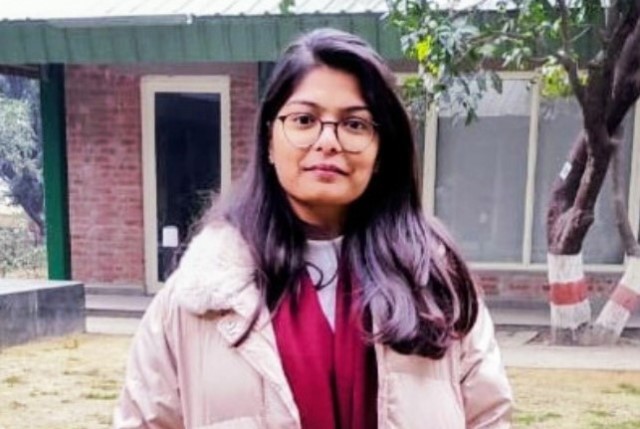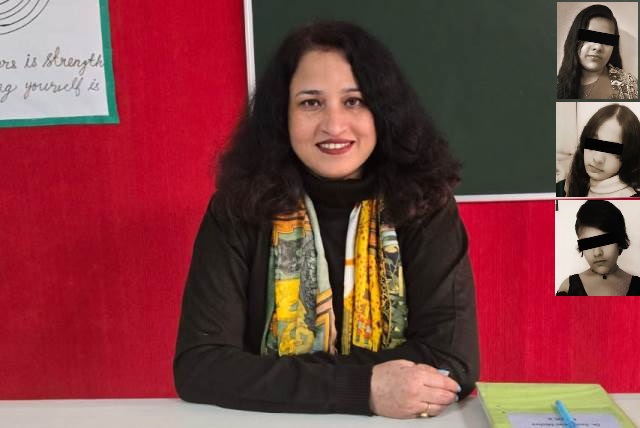
‘Rightwing Politics Debars Progressive Women; 18th Lok Sabha Reflects That’
Karen Gabriel, who heads Department of English in St. Stephen’s College, says the deep-seated gender biases that discourage women from entering politics have risen under Modi Govt. Her views:
Even though the Women’s Reservation Bill was passed in 2023 as the Constitution (106th Amendment) Act, 2023, it will be implemented only after the next census is conducted. However, the passage of the bill by the BJP-led government should not be read as its commitment to women’s issues. For example, look at the gender ratio of BJP MPs, in the current, 18th Lok Sabha. There are 31 women MPs out of a total of 240 BJP MPs. This is just short of 13 per cent, far below the 33 per cent proposed in the new law!
In fact, the number of female BJP MPs has come down — from 41 in the 17th Lok Sabha, to the current number of 31. Even with higher numbers in the previous Lok Sabha, the absence of substantial legislative action points towards women’s representation as mere tokenism for the BJP.
Of course, there is a larger malaise that we have all noticed: women are discouraged from occupying political office in various ways. Out of the approximately 8,360 candidates who contested in the 18th Lok Sabha elections at the national level, less than 10 per cent of the candidates (only 800) were women. Many of them reportedly faced misogyny and mockery from their constituents and their parties. This is unsurprising since we have a long way to go for gender and social equality.
Moreover, many political parties are yet to create internal gender-equal policies, mechanisms and woman-friendly cultures at various levels that will promote women candidates. Finally, the contentions around caste-based reservation within the 33 per cent reservation for women need transparent, sustained consultation.
Having said this, one must say that the deep-seated gender biases that discourage women from entering and staying in politics have only exacerbated under the successive Modi governments. BJP party members and allies, credibly accused of rape and sexual harassment, have been openly supported by their top leadership.
Brazen institutional and political support was given to Bilkis Bano’s rapists, Brij Bhushan Saran, Prajwal Revanna, and others accused of sexual misconduct and rape. The increasing Hindutva-isation of the socio-polity in the last decade has only intensified pervasive patriarchal cultures and various forms of caste and community-based gender violence. Any programme to counter the Hindutva agenda must include proper, representative, women’s reservation as a fundamental means of political and social action.
ALSO READ: Bilkis Lives in Fear While Her Rapists Are Lionized
It is a mistake to think that being a woman automatically makes one feminist. By feminist, one indicates women, men and other genders, who, while accepting the fact that women are profoundly subordinated, also recognize the intersections between women’s subordination and other forms of subordination.
Women, who promote hate politics, are not interested in a better society, or in any form of social change or progressive solidarities. Like, patriarchal men, they too are invested in the status quo and the privileges that they enjoy — however precariously. They too exploit, ignore or invoke the oppressed, disempowered, marginalised, persecuted and the precarious, as it suits them.
Not a single BJP woman MP spoke up during the ‘Sulli Deals’ controversy, the world champion women wrestler’s protracted protest, the Manipur carnage, and the public spectacle of the brutalization of women by a blood-thirsty mob, or the ‘hijab’ ban. In fact, Meenaskhi Lekhi actually ran away from media questions, while Smriti Irani, predictably, remained her callous self.
Typically, Rightwing politics – whether in India or abroad – demands allegiance to deeply gendered community identities over cross-cutting forms of solidarity. Moreover, it is imperative to understand that Rightwing religious politics is a close and constant bed-fellow of economic Rightwing-ism, which, again, only magnifies political and economic cleavages over solidarities.The growing participation of and allegiance of women to Rightwing politics and movements is a source of serious concern for progressive women’s movements globally.
I think that all progressive movements have come under enormous pressure from the onslaught of the ‘State-Corporate’ agenda. They are all struggling to comprehend and deal with carefully planned but rapid and exorably violent changes from above. They are all coping with increasingly policed and even militarized public spaces.
The many women’s movements in India have had to deal with multiple challenges over the last couple of decades: issues of communal and caste polarization, those of liberalization and class disaggregation, questions of (sexual) identity politics, mass-migration and increasing State repression.
The efflorescence of social media is a game-changing mixed bag. Attacks on intellectual and academic freedom continue to take its toll, the criminalization of dissent and restrictions to common spaces is only intensifying. To add to this, all movements are starved of money.
Local and global solidarities, coordinated and continuous mass movements, diverse modes of protest, and radical forms of courage and action, are the only way forward — through the shamelessness of the elite nexus that is on display right now. This magic has happened before, and it will undoubtedly happen again.
(The narrator is Director of the Centre for Gender, Culture and Social Processes, St. Stephen’s College, Delhi University. Her recent publications include, ‘Unpacking Patriarchies: Feminism and the Humanities in India’, ‘The World Humanities Report’, Consortium of Humanities Centers and Institutes (CHCI), The Board of Regents of the University of Wisconsin, 2022, ‘Towards Alternative Histories: Gandhi and the Interconstitutive Impact of the Colonial Encounter’, ‘Inheriting Gandhi: Influences, Activisms, (eds.) Satishchandra Kumar, Kanchana Mahadevan, Meher Bhoot and Rajesh Kharat. New Delhi: Speaking Tiger, 2022, ‘Close Encounters of an Imperial Kind: Gandhi, Gender and Anti-Colonialism’, in ‘Reflections on Mahatma Gandhi: Global Perspectives’, (eds.) Terry Beitzel and Chandrakant Langare, Delhi, Rawat 2021, ‘The Algorithms of Desire: The Field of the Pornographic’. SAGE Handbook of Global Sexualities, Chiara Bertone, Zowie Davy, Saskia Wieringa (eds). London: Sage, 2020, ‘Whose State is it Anyway: Reservation, Representation, Caste and Power’, (with P K Vijayan) in ‘BR Ambedkar: The Quest for Justice. Vol II: Social Justice’. Aakash Singh Rathore (ed). New Delhi: OUP, 2020.)
As told to Amit Sengupta
For more details visit us: https://lokmarg.com/

‘Social Media Addiction Is Turning Into A Mental Health Crisis’

‘Delhi AI Summit Was A Bitter Experience For Visitors & Participants Alike’

‘Trade Deals With US & EU Will Integrate India Into Global Economic Order’
